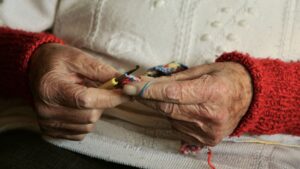In Honolulu, Hawaii, families are discovering a profound solution to the challenges of aging and illness: in-home healthcare aides. At Wilson Care, we understand the importance of maintaining independence and dignity while ensuring the highest level of care for your loved ones. Let’s explore the invaluable benefits of welcoming a nurse aide into your home.…
Read MoreIn the heart of Hawaii, Wilson Care Group Honolulu stands out as the premier skilled nursing facility, offering unparalleled care and services to our residents. With a dedicated team of professionals and a commitment to excellence, it’s our mission to provide personalized care that’s right for each of our clients. Backed by years of experience…
Read MoreAs we age, managing medications can become increasingly complex, often requiring more attention and organization. This is especially true for seniors who may be dealing with multiple health conditions and a variety of prescribed medications. At Wilson Care in Oahu, we recognize the significance of effective medication management services for seniors in maintaining their health…
Read MoreAt Wilson Care, we understand the importance of skilled caregivers in providing exceptional care for seniors. As the leading provider of skilled nursing home care in Honolulu, HI, we believe in prioritizing the well-being and comfort of our residents. In this blog post, we will discuss four key responsibilities of a skilled caregiver and how…
Read MoreAt Wilson Care, we understand the challenges of caring for a loved one in their senior years. As the leading senior living center in Honolulu, HI, we have seen firsthand the positive impact that senior home care can have on the well-being of older adults. In this blog post, we will outline four signs that…
Read MoreThe holiday season is a time of love, joy, family, and giving. Whether it’s for Thanksgiving or Christmas, this is the time when families typically come together and share irreplaceable experiences that will carry them through into the new year. Although celebrating can be challenging when our senior loved ones reside in a senior living…
Read MoreIf you have concerns about the well-being of your aging loved one, it may be time to consider personal home care services. Private home health aides can provide the necessary assistance and support to ensure your loved one’s comfort and safety. Wilson Homecare, a reputable provider of at-home health aide services throughout Oahu, including Kailua,…
Read MoreWhen it comes to the well-being of our loved ones, it’s important to recognize the signs that indicate they may need the support of a skilled caregiver. Skilled nursing home care services can provide the necessary expertise and compassionate care to ensure health and quality of life. Learn five signs that suggest it may be…
Read MoreWelcome to the stage of life where your hard-earned wisdom becomes your guiding light and your radiant smile becomes an infectious symbol of joy. Here at Wilson Care, we understand and deeply honor the vibrant hues of these golden years. We comprehend that choosing between assisted living and independent senior living isn’t just a simple…
Read MoreAs we grow older, we face many challenges that we don’t always anticipate. As our bodies age, we often require more care and attention than we once did. Skilled nursing homes provide the necessary care and support for our elderly loved ones. In this blog post, we’ll explore the inside of Wilson’s Skilled Nursing Home…
Read More









